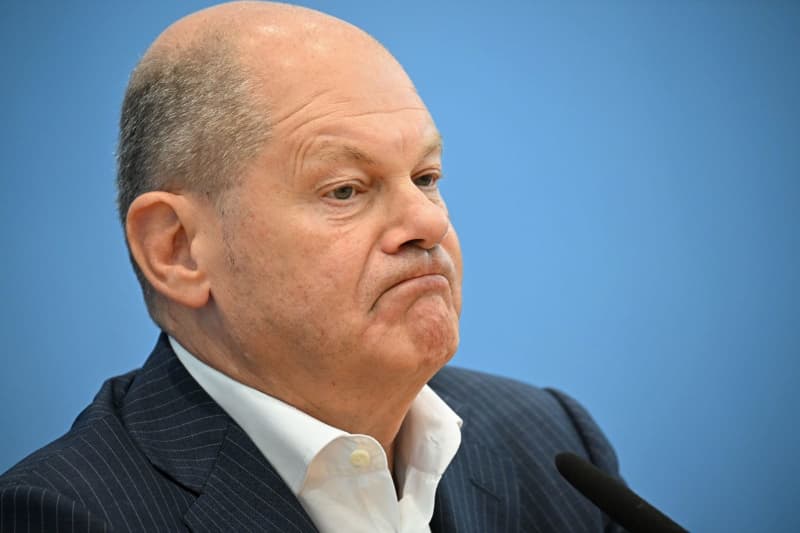
German Chancellor Olaf Scholz has said he considers border checks to be a sensible measure to limit irregular migration to Germany.
“In general, we intend to continue strictly controlling the German borders,” Scholz said in an interview published in Friday’s edition of the Saarbrücker Zeitung regional newspaper. “We want to limit irregular migration, as I have announced. The numbers have to come down.”
Migration for the German labour market is necessary and also desired, he said. “There are too many who come to us irregularly, claiming to seek protection from persecution, but cannot provide any reasons for asylum and are then rejected,” Scholz added.
He also pointed to existing checks, such as at the French border for the duration of the Olympic Games that start on Friday. The checks are set to continue until September 30.
For the land borders with Austria, Switzerland, the Czech Republic and Poland, German Interior Minister Nancy Faeser ordered the reintroduction of physical checks in October, which were officially registered with the European Commission as required.
These continue to limit irregular migration and combat people smuggling, the government has said.
They are currently limited to Switzerland, the Czech Republic and Poland until December 15, and for Austria, where checks have been in place since the autumn of 2015, until November 11.
In fact, no border checks should take place within the Schengen Area visa-free travel zone, to which most EU countries and non-EU countries such as Switzerland belong. However, due to the tense migration situation, several countries have reimposed checks at some of their Schengen internal borders.
During the UEFA European Football Championship from June 14 to July 14 in Germany, all the country’s borders were checked.
As the Federal Police reported from its headquarters in Potsdam just outside Berlin, a total of 9,172 unauthorized entries were detected between June 7 and July 19. Of these unauthorized entrants, 6,401 people were turned back, the police said.
The police also provisionally arrested 275 suspected smugglers, it said.
In the first half of this year, 121,416 people applied for asylum for the first time at the Federal Office for Migration and Refugees (BAMF), about 19% fewer than in the same period of the previous year.
War refugees from Ukraine are currently still being accepted in accordance with the EU’s mass influx directive. They do not have to apply for asylum.
According to experts, additional border checks have contributed to fewer asylum seekers coming to Germany since the autumn.
Another factor is likely to be border protection measures by other states, such as along the so-called Balkan route.
Currently, practically the only people being turned back are those either subject to re-entry bans or who do not make a request for asylum.
EMEA Tribune is not involved in this news article, it is taken from our partners and or from the News Agencies. Copyright and Credit go to the News Agencies, email news@emeatribune.com Follow our WhatsApp verified Channel





